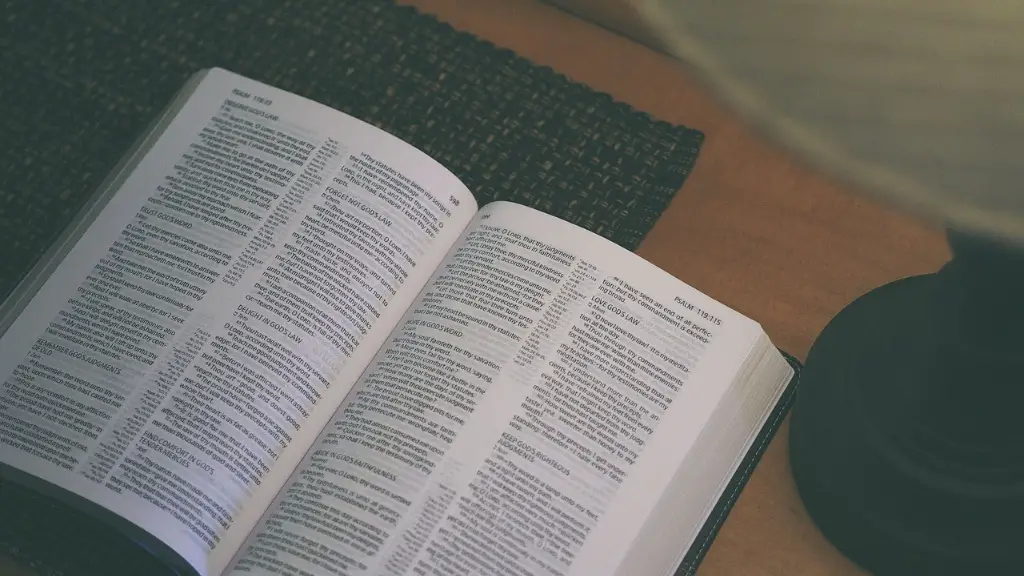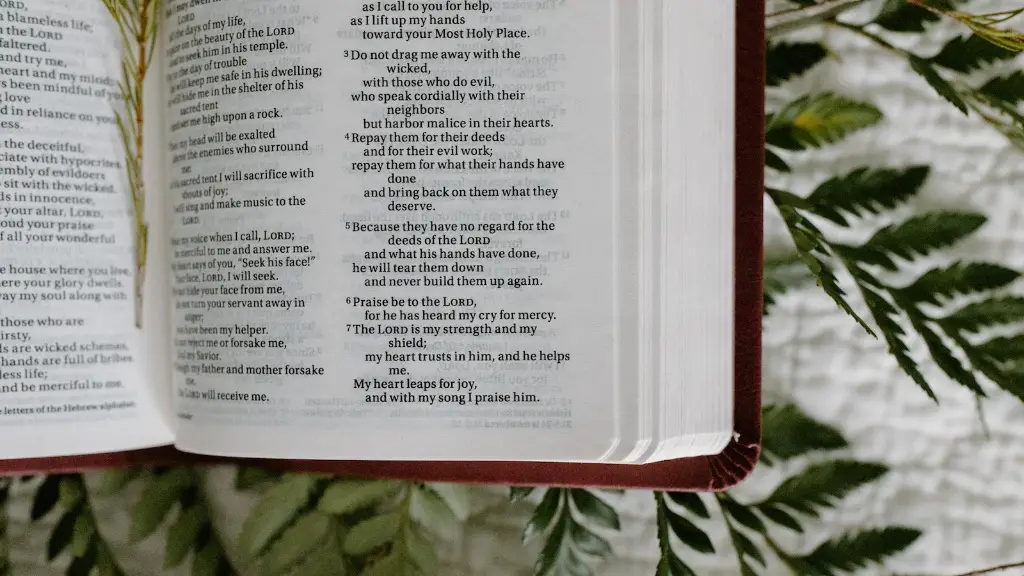Calamity: It’s a word used to describe a bad event or happening. It can be described as a terrible event that has had disastrous consequences. But what does calamity mean in the Bible?
In the Old Testament, calamity is often referred to as a devastating punishment from God. In the Hebrew Bible, the same word is used in the plural form to signify a calamity or plague. In many places throughout the Bible, calamity is associated with God’s judgment or wrath.
For example, when Moses and the Israelites were on their way to the Promised Land, they encountered a series of plagues and calamities. God showed His anger with the Pharaoh and his people through the punishments: He sent hail, locusts, frogs, and other plagues (Exodus 9:13-35).
In other passages, calamity is associated with wreaking havoc on the wicked, particularly those who disobey God’s commands or laws. In some cases, calamity is linked to famine or natural disasters. For example, during the time of Joseph, there was a long period of famine in Egypt (Genesis 41:1-57).
In the New Testament, calamity is mentioned in a few occurrences. Jesus warns His followers to be on the lookout for false prophets and false teachers who will lead many astray (Matthew 7:15-23). He warns that these actions may lead to calamity in the end.
In some passages, Jesus speaks of calamity as a sign that the End Times are near. He speaks of the coming destruction of Jerusalem in Matthew 24:7-9 and of the destruction of heaven and earth in the Book of Revelation.
Overall, the Bible speaks of calamity as a divine punishment for disobedience or as a sign that the End Times are near. It is a reminder to live a life that is pleasing to God, and to trust in His plans and His will.
Examples of Biblical Calamities
Throughout the Bible, we are given various examples of God’s discipline and judgment towards those who disobey Him. Here are a few examples of calamities described in the Bible:
- God sent an angel to kill King David’s son for his sins (2 Samuel 24:15-17).
- God sent a famine to the land of Egypt (Genesis 41:1-57).
- God brought His people, the Israelites, out of slavery in Egypt through 10 plagues (Exodus 7-12).
- God sent a flood to wipe out all of humanity, except those who He found to be righteous (Genesis 6-9).
- God destroyed the cities of Sodom and Gomorrah (Genesis 19:24-29).
These and other calamities described in the Bible serve to remind us that God is in control and that we must submit to His will.
God’s Comfort and Salvation in the Face of Calamity
Despite all the calamities described in the Bible, there is comfort and hope found in God’s promises. He promises to provide salvation to those who turn to Him and put their faith in Him. We are reminded that no matter what calamity befalls us, God is always there. Pslam 34:18 states “The Lord is close to the brokenhearted and saves those who are crushed in spirit”. In Jeremiah 29:11, God promises that He will “take great delight in” His people, and will “rejoice over them with singing”.
We can also find hope in the story of Job. In the face of tremendous calamity, Job remained faithful to God. When all was said and done, Job was rewarded, and God restored all that he had lost (Job 42:10). This speaks to God’s commitment to His people, and His promise to never leave our side, even in the face of calamity.
While the Bible speaks of calamity and disasters, it also speaks of God’s faithfulness. He is always with us and He always has a plan. Even in the midst of the most difficult times, we can trust in God and know that He will never leave us.
God’s Love and Protection
In the face of calamity, God offers us comfort and hope. He promises to love us, protect us, and never leave us. He promises to be faithful to His people even when things don’t go the way we want. To those in need, He offers sweet relief to restore our souls.
Psalm 34:18 says, “The Lord is close to the brokenhearted and saves those who are crushed in spirit.” In Isaiah 43:2, He promises us that “When you pass through the waters, I will be with you; and when you pass through the rivers, they will not sweep over you.” God is a loving Father who desires to protect us from all forms of evil, and He will never forsake us.
God’s presence will be with us in times of calamity and distress. He desires to be our refuge in times of need. He promises to carry us through the roughest of storms, and reminds us to always trust in Him, no matter what.
Reaping the Benefits of Trusting in God
Trusting in God brings us peace of mind, comfort and assurance in the face of calamity. He is a safe and sure refuge, a strong tower that never fails. Turning to Him in times of distress brings about new strength and hope for the future. He promises to never leave us and to always keep us in His care. What a wonderful thought it is to know that God is always with us!
Trusting in God helps to keep our eyes focused on Him and not on our circumstances. This creates an open door of opportunity for God to work in our lives. We can trust in Him to never leave us, to be faithful to us, and to grant us all the blessings He desires for us.
When we put our trust in God, He promises us that He will never lead us astray (Psalm 25:3). Psalm 42:5 reminds us “Why are you cast down, O my soul? And why are you disquieted within me? Hope in God; for I shall yet praise Him, the help of my countenance and my God.”
Responding to Calamity in the Right Way
While the Bible speaks of God’s judgment and wrath through calamity, we must remember to respond to calamity in the right way. We must be humbled and repent of our sins, showing a willingness to turn away from evil and turn towards God. When we turn to God in times of distress, He will show us mercy and grace.
God’s word speaks to us during times of calamity, reminding us of His promises and His faithfulness. He reminds us that He is with us and that He will never forsake us. He also reminds us to always put our trust in Him and to wait patiently for His plan to unfold.
In the face of calamity, the Bible speaks to us of humility, repentance, and trust. We must remember to place our trust in the Lord and to seek His protection. He is our refuge and our strength, and He promises to never leave us.





